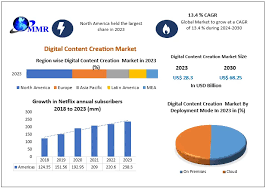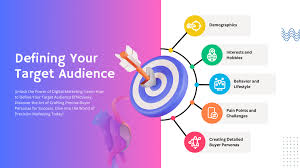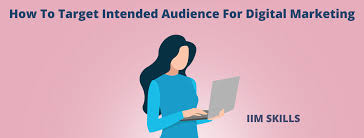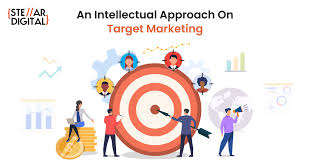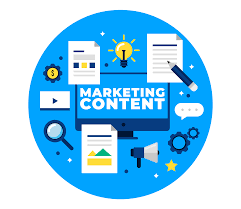Unlocking Success: The Essential Guide to a Digital Marketing Agency Blog
The Power of a Digital Marketing Agency Blog
In today’s digital age, having a strong online presence is crucial for businesses looking to reach their target audience effectively. One powerful tool that digital marketing agencies often utilise is a blog. A well-maintained and strategically planned blog can offer numerous benefits for businesses seeking to enhance their online visibility and engage with their customers.
Benefits of Having a Digital Marketing Agency Blog:
- Boost Search Engine Rankings: A regularly updated blog with relevant and high-quality content can improve a website’s search engine rankings, making it more visible to potential customers searching for related products or services.
- Establish Authority and Thought Leadership: By sharing valuable insights, industry news, and expertise through blog posts, a digital marketing agency can position itself as an authority in its field, building trust and credibility among its audience.
- Drive Traffic to the Website: Engaging and informative blog posts can attract visitors to the website, increasing traffic and providing opportunities for conversions.
- Enhance Brand Awareness: Consistent blogging helps reinforce brand messaging and values, keeping the brand top-of-mind for customers and prospects.
- Build Customer Relationships: Blogs allow businesses to interact with their audience through comments, social media shares, and feedback, fostering stronger relationships with customers.
Tips for Running an Effective Digital Marketing Agency Blog:
- Create a Content Calendar: Plan your blog posts in advance to ensure consistency and alignment with your marketing goals.
- Focus on Quality Content: Provide valuable information that educates, entertains, or solves problems for your audience.
- Optimise for SEO: Use relevant keywords, meta tags, and internal linking strategies to enhance search engine visibility.
- Promote Your Blog: Share your blog posts on social media platforms, email newsletters, and other channels to reach a wider audience.
- Analyse Performance: Monitor key metrics such as traffic, engagement rates, and conversions to assess the effectiveness of your blog strategy and make necessary adjustments.
In conclusion, a well-maintained blog can be a powerful asset for any digital marketing agency looking to enhance its online presence, engage with its audience effectively, and drive business growth. By following best practices and staying committed to delivering valuable content consistently, a digital marketing agency can leverage the power of blogging to achieve its marketing objectives successfully.
Essential FAQs on Blogging for Digital Marketing Agencies
- What is blog marketing in digital marketing?
- Can blog be used in digital marketing?
- How do I write a blog for a digital marketing agency?
- Can I write a blog on digital marketing?
- What content should I post for digital marketing agency?
- What should I post as a digital marketing agency?
What is blog marketing in digital marketing?
Blog marketing in digital marketing refers to the strategic use of blog content as a powerful tool to promote a brand, engage with audiences, drive traffic to a website, and ultimately achieve marketing goals. By creating and sharing valuable, relevant, and engaging blog posts, businesses can establish themselves as industry experts, build credibility, and attract potential customers. Blog marketing involves leveraging SEO techniques to improve search engine visibility, sharing blog posts on social media platforms to reach a wider audience, and analysing performance metrics to measure the effectiveness of the blog strategy. Overall, blog marketing plays a crucial role in enhancing online presence, fostering customer relationships, and driving business growth in the digital landscape.
Can blog be used in digital marketing?
The question “Can a blog be used in digital marketing?” is a common query among businesses seeking to enhance their online presence. The answer is a resounding yes. A blog is a valuable tool in digital marketing strategies, offering businesses the opportunity to engage with their target audience, drive website traffic, boost search engine rankings, establish authority in their industry, and build lasting relationships with customers. By consistently creating and sharing relevant and high-quality content on a blog, businesses can effectively showcase their expertise, attract potential customers, and ultimately achieve their marketing goals in the digital realm.
How do I write a blog for a digital marketing agency?
When it comes to writing a blog for a digital marketing agency, there are several key steps to keep in mind. Firstly, it’s crucial to understand the target audience and their interests to create content that resonates with them. Researching relevant topics, trends, and keywords can help in crafting engaging and informative blog posts. Incorporating a mix of text, visuals, and multimedia elements can enhance the overall appeal of the content. Additionally, focusing on providing value, addressing common pain points, and offering practical tips can help establish the agency as an authority in the field. Consistency in posting schedules and promoting the blog across various channels can also contribute to its success in reaching a wider audience and driving traffic to the agency’s website.
Can I write a blog on digital marketing?
Writing a blog on digital marketing can be a valuable endeavour for individuals looking to share their insights, experiences, and expertise in the field. Whether you are a seasoned professional or a beginner eager to learn and contribute, creating a blog on digital marketing offers an excellent platform to showcase your knowledge, connect with like-minded individuals, and establish yourself as a thought leader in the industry. By consistently producing high-quality content that resonates with your target audience, you can not only enhance your own understanding of digital marketing but also provide valuable information and insights to others seeking guidance in this dynamic and ever-evolving field.
What content should I post for digital marketing agency?
When determining the type of content to post for a digital marketing agency, it is essential to consider a strategic approach that aligns with the agency’s goals and target audience. Content should be informative, engaging, and relevant to the industry, showcasing the agency’s expertise and thought leadership. This can include a mix of blog posts covering industry trends, case studies highlighting successful campaigns, how-to guides offering practical advice, client testimonials showcasing results, and curated content sharing valuable resources. By providing a variety of content types that cater to different interests and needs, a digital marketing agency can effectively showcase its capabilities and attract potential clients seeking valuable insights and solutions in the ever-evolving digital landscape.
What should I post as a digital marketing agency?
When considering what to post as a digital marketing agency, it is essential to focus on creating content that adds value to your target audience. This can include a variety of topics such as industry insights, marketing trends, case studies, success stories, tips and tricks, how-to guides, and relevant news updates. By sharing valuable and informative content that resonates with your audience’s interests and challenges, you can establish your agency as a trusted source of expertise in the digital marketing space. Additionally, showcasing your agency’s unique approach, services, and success stories through compelling storytelling can help attract potential clients and demonstrate the results you can deliver.



